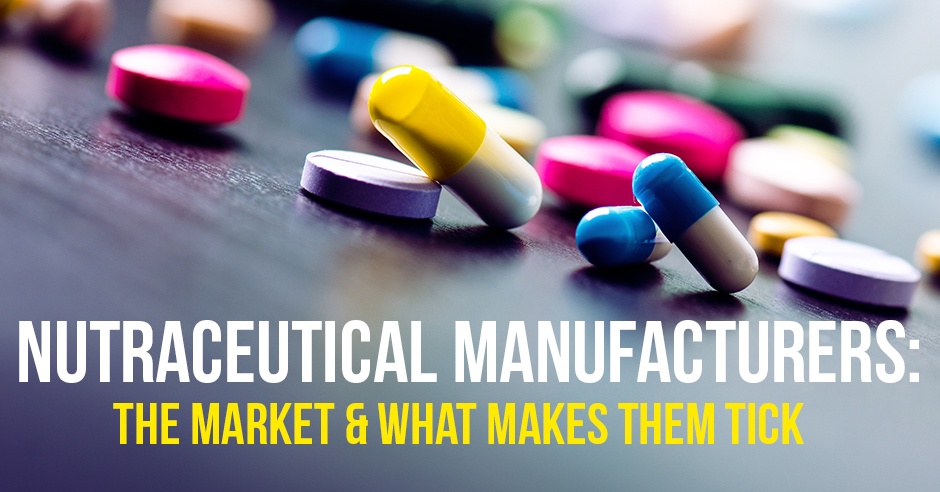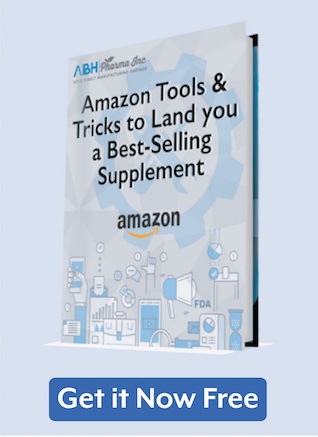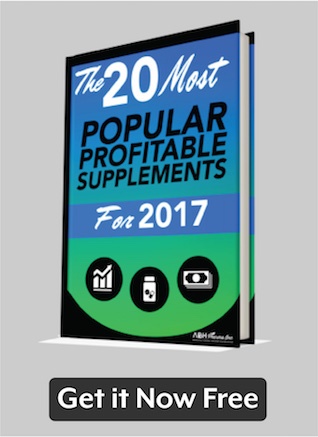There are a lot of word mashups in marketing and business these days and the term ‘nutraceutical’ is one of the biggest.
The word, in case you couldn’t tell, is a combination of nutrition and pharmaceutical- the suggestion being that through proper or focused nutrition, a person can achieve medicinal benefits.
Further, it is implied that treating some kind of condition, deficiency- or providing preventative nutrition for a preventable condition- by using a nutraceutical product- users can avoid most or all of the dangerous side effects associated with pharmaceutical drugs.
Needless to say, the nutraceutical manufacturing industry is exploding- and if their products are worthwhile- you can expect that trend to persist.
The Growing Nutraceutical Contract Manufacturers Market
The nutraceutical manufacturing market is divided into four main areas:
- foods
- beverages
- dietary supplements
- ingredients
What all of these have in common are that they offer or are meant to offer some kind of health benefit to those who use them.
The Global nutraceutical market had skyrocketed to $142 billion by 2011, and it is expected to surpass $199 billion this year.
A new study by BCC Research predicts significant growth in the international market for nutraceutical product manufacturing.

The rise of health concerns, a growing aging population and the increasing per capita income of people in developing countries are all driving the nutraceutical market to realize an estimated $285 billion in 2021, up from approximately $199 billion in 2016.
BCC Research also reports that growing consumer demand for nutraceuticals is helping nutraceutical manufacturers and other market players to find valuable niches in the global market by bringing a variety of new and innovative products to retailers, further enlarging the global market.
Growing Trends that Benefit Nutraceutical Manufacturers
New technology in the food industry
such as
genetically modified (GM) foods for particular functions requires particular nutrients.
This is a development that can be expected to boost revenues.Growing international regulation in the industry, a constant stream of new product launches and an increase in acquisitions are driving growth.
Functional nutraceutical beverages were a commanding presence in the international market for the 2015 fiscal year with an enormous 36% share.
This was closely followed by functional nutraceutical food with 33%, and dietary nutraceutical supplements holding 32%.
What’s Behind the Most Successful Nutraceutical Manufacturers?
Those companies that hold dominant positions in the global market are working to introduce more new nutraceutical products to the market.
These companies are introducing many innovative products- and this is making innovation one of the key trends that will separate the leaders from the rest.

This should not be surprising for anyone even remotely familiar with the vitamin and sports supplement trade.
The most important things that set one entity apart from another is marketing and branding in such a way so as to stand out among the huge amount of competition.
But manufacturers are not selling direct to customers, most of the time. They are selling to retailers.
Where retailers want their own products, the manufacturer has no problem. They simply fit the bill.
But where they aspire to create their own brands and bring them to market, they are subject to all of the same market forces that a smaller retail outlet is.
Passing the Retail Barrier
If you’re a nutraceutical manufacturer, and you want to create your own product to sell to retailers, you’re up against an important phenomenon that really must be dealt with correctly- the retail barrier.
A retailer has to market their product directly to the customer.
It’s no great comfort to the retailer since they generally have less capital to work with than a manufacturer.
But still, there’s no filter- if their consumer base doesn’t respond positively- then they can react in a way that’s a bit nimbler than a manufacturer can.
There are at least three ways nutraceutical manufacturers can get around the retail barrier.
Direct Messaging
Having done your own market research, you can use the data to create accurate marketing messages to the retailers that you would like to carry your products.
The only problem with this is that retailers may be unconvinced by your sales pitch. That’s where a professional sales team comes in handy.
Direct Marketing
It’s a good idea for a manufacturer to own a retail outlet for vitamins and similar products where they can sell their own brands. This gives the manufacturer a direct resource for marketing research.
Sales Consulting
Of course, a good consultant can solve a lot of problems.
Having an expert on hand with direct experience in dealing with and selling to the public is a great idea.
You want to deal with someone who has their finger on the pulse of the various consumer demographics not only for all four of the different nutraceutical product types- but for all of the different type of personalities within the vitamin and sports supplement consumer group.
Anything you can do to eliminate the guesswork is important.
Anticipate Regulatory Changes
It may seem a tiresome topic, but we do have a new president in office and he is of a very different persuasion to the previous president.
This could have a dramatic effect on the direction that regulations will change in the short and long term.
We should have a good idea of where the Trump administration will take regulations affecting the
nutraceutical industry within the next six to twelve months- but for now- your guess is as good any ours.
It may help to keep in mind that Trump has promised pro-business regulation reform, but at the same
time has appointed a staunchly “law and order” attorney general.
So, that which falls under Trump’s preview concerning nutraceutical manufacturers is up in the air.
In the meantime, industry pros are saying that one thing is for sure- if you’ve got production centers overseas- you may want to relocate them stateside before Trump’s import tariffs kick in.







